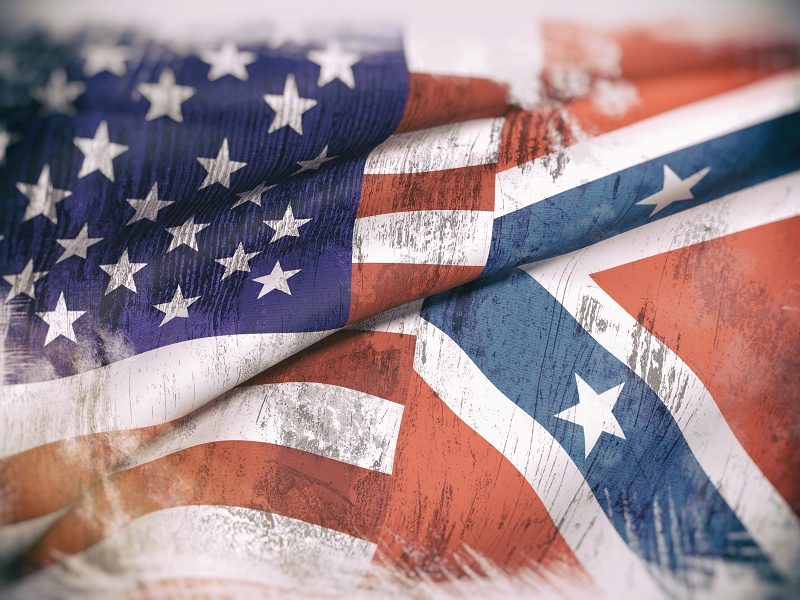April 29 1861 Monday
CSA. President Jefferson Finis Davis proposed to Congress that the Confederate Regular Army should create a new grade of General, in addition to the existing grade of Brigadier-General. This would enable the Confederate officer to outrank the Brigadier-Generals and Major-Generals of State Militias, whose credentials may not be as appropriate as those of the Confederate Brigadier-Generals. The grade of “full” General had never existed in the US Army and independence presented an opportunity for the new Army to appoint a number of the highest-ranking commanders for each likely theatre of operations.
Maryland. The Maryland House of Delegates voted against secession by 53 votes to 13 and the Senate voted unanimously against secession. Despite the protest of a large and vociferous pro-Confederate minority in the population, the state remained loyal to the Union, although many men left to join the Confederate Army.
Maryland. US President Abraham Lincoln issued an executive proclamation asserting martial law in the state of Maryland. Maryland Governor Thomas H Hicks sent a message of protest to the state legislature communicating to them the correspondence between himself and Massachusetts State Brigadier-General Benjamin Franklin Butler and the US Secretary of War Simon Cameron about the landing of Union troops at Annapolis.
Maryland. Communications between Baltimore and Philadelphia were reinstated by Union forces.
Ohio. Brigadier-General of Ohio Militia Jacob Dolson Cox began the construction of a major camp of instruction for Midwestern volunteers at Camp Dennison, near Cincinnati.
Virginia. The old warship USS United States was captured at the Norfolk Navy Yard and commissioned as the first vessel of the Virginia State Navy.
Virginia. A force of about 8,000 Virginian state troops had already gathered in Harper’s Ferry under Virginia State Brigadier-General Kenton Harper when Confederate Colonel Thomas Jonathan Jackson arrived to take over the command. A further 15,000 men were accumulating near Alexandria under Virginia Brigadier-General Philip St George Cocke. In comparison, the Union garrison of Washington, DC, had now risen to about 10,000 men.
Union Organisation
USA: Colonel Edmund Brooke Alexander (10th US Infantry) assumed temporary command of the Department of the West, succeeding Captain Nathaniel Lyon.
Commander in Chief: President Abraham Lincoln
Vice-President: Hannibal Hamlin
Secretary of War: Simon Cameron
Secretary of the Navy: Gideon Welles
Pacific Squadron: John Berrien Montgomery
Potomac Flotilla: James Harmon Ward
General–in-Chief: Winfield Scott
Department of Annapolis: Benjamin Franklin Butler awaited
Department of the East: John Ellis Wool
Department of Florida: Harvey Brown
Department of New Mexico: William Wing Loring
Department of the Pacific: Edwin Vose Sumner awaited
- District of Oregon: George Wright
Department of Pennsylvania: Robert Patterson
Department of Texas: Vacant
Department of Utah: Philip St George Cooke
Department of Washington: Joseph King Fenno Mansfield
Department of the West: Edmund Brooke Alexander temporary
Confederate Organisation
CSA: Colonel Thomas Jonathan Jackson assumed command of the Forces in Harper’s Ferry, succeeding Virginia State Brigadier-General Kenton Harper.
Commander in Chief: President Jefferson Finis Davis
Vice-President: Alexander Hamilton Stephens
Secretary of War: Leroy Pope Walker
Secretary of the Navy: Stephen Russell Mallory
Department of Alexandria: Philip St George Cocke
- Alexandria Line: Philip St George Cocke
Department of North Carolina: Theophilus Hunter Holmes
- Defences of North Carolina: Theophilus Hunter Holmes
Department of South Carolina: Pierre Gustave Toutant Beauregard
- “Forces in Charleston”: Pierre Gustave Toutant Beauregard
Department of Texas: Earl Van Dorn
Department of West Florida: Braxton Bragg
- “Forces in Pensacola”: Braxton Bragg
District of Louisiana: David Emanuel Twiggs
- “Forces in New Orleans” “Army of Louisiana”: Braxton Bragg
Defences of Savannah: Alexander Robert Lawton
Potomac Line: Daniel Ruggles
“Forces in Harper’s Ferry”: Thomas Jonathan Jackson assumed
“Forces in Norfolk”: Walter Gwynn
Forces in Richmond: Joseph Eggleston Johnston
Union Generals
Major-General USA
Winfield Scott
Brigadier-General USA
John Ellis Wool
William Selby Harney
Edwin Vose Sumner
Confederate Generals
Note: Italics, awaiting confirmation of the commission
Major-General PACS
David Emanuel Twiggs
Brigadier-General ACSA
Pierre Gustave Toutant Beauregard
Braxton Bragg
Brigadier-General PACS
Alexander Robert Lawton
Milledge Lake Bonham
